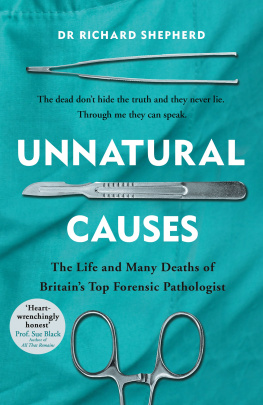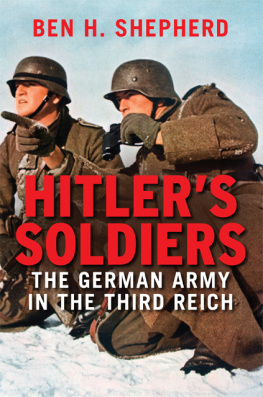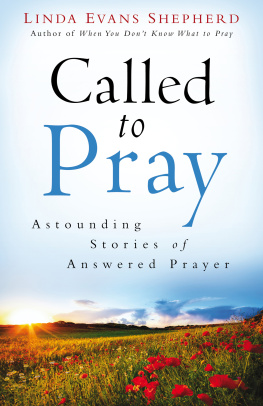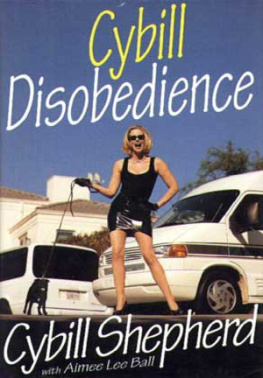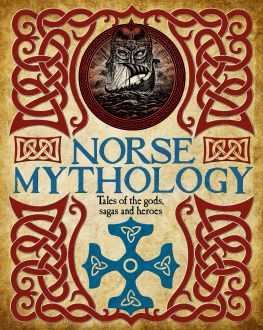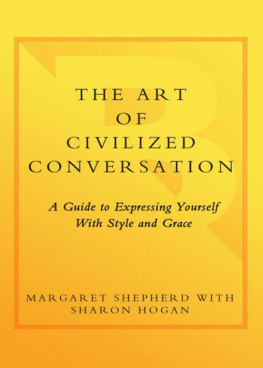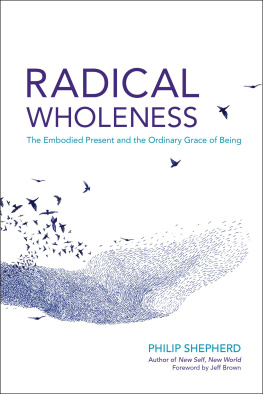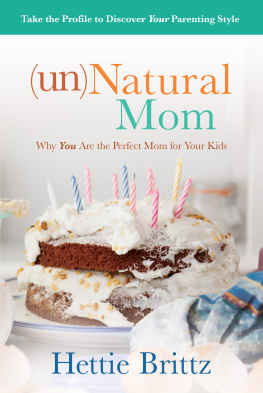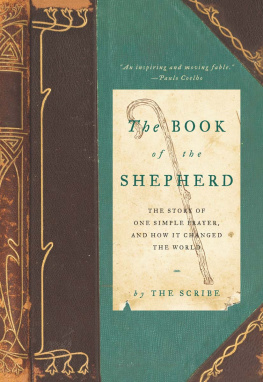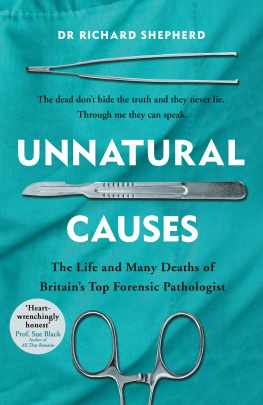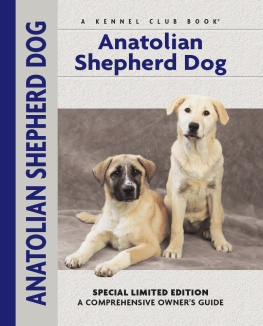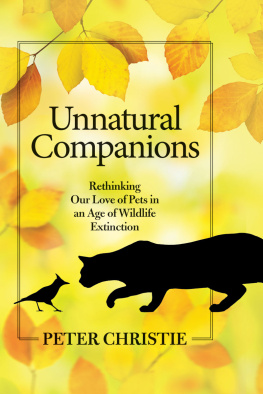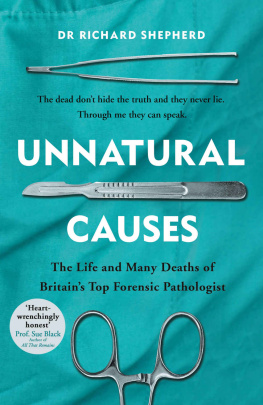Shepherd - Unnatural Causes
Here you can read online Shepherd - Unnatural Causes full text of the book (entire story) in english for free. Download pdf and epub, get meaning, cover and reviews about this ebook. City: UK, year: 2019;2018, publisher: Penguin Random House UK, genre: Non-fiction. Description of the work, (preface) as well as reviews are available. Best literature library LitArk.com created for fans of good reading and offers a wide selection of genres:
Romance novel
Science fiction
Adventure
Detective
Science
History
Home and family
Prose
Art
Politics
Computer
Non-fiction
Religion
Business
Children
Humor
Choose a favorite category and find really read worthwhile books. Enjoy immersion in the world of imagination, feel the emotions of the characters or learn something new for yourself, make an fascinating discovery.
- Book:Unnatural Causes
- Author:
- Publisher:Penguin Random House UK
- Genre:
- Year:2019;2018
- City:UK
- Rating:5 / 5
- Favourites:Add to favourites
- Your mark:
- 100
- 1
- 2
- 3
- 4
- 5
Unnatural Causes: summary, description and annotation
We offer to read an annotation, description, summary or preface (depends on what the author of the book "Unnatural Causes" wrote himself). If you haven't found the necessary information about the book — write in the comments, we will try to find it.
Unnatural Causes — read online for free the complete book (whole text) full work
Below is the text of the book, divided by pages. System saving the place of the last page read, allows you to conveniently read the book "Unnatural Causes" online for free, without having to search again every time where you left off. Put a bookmark, and you can go to the page where you finished reading at any time.
Font size:
Interval:
Bookmark:
I have been very fortunate to spend my career working in a profession which has fascinated me from the first moment I knew it existed. But it is only when I look back over forty fleeting years that I realize what a crucial part family, friends and colleagues have played. I remember them all but they are, of course, far too numerous to list, so here I thank just a few of them. Dr Rufus Crompton and Professor Bill Robertson they created a job especially for me to study forensic pathology at St Georges Hospital and showed me the path ahead.
The many coroners I have worked for and with, including Paul Knapman, John Burton, David Paul, Alison Thompson, Michael Burgess they have helped me to give understanding and closure to so many devastated families.
My colleagues at Guys Hospital, Dr Iain West, Dr Vesna Djurovic and Dr Ian Hill. And, of course, The Forensic Medicine Unit at St Georges: Dr Robert Chapman, Dr Margaret Stark and Dr Debbi Rogers, as well as the indefatigable Rhiannon Layne and the ever-cheerful Kathy Paylor.
Not forgetting the staff in mortuaries all over the country for their immense skills so seldom recognized or praised and for their friendship, support and, of course, cups of tea! I have worked in courts of all sorts in the UK and abroad and the court staff have always been polite and helpful. I must mention in particular the staff at the Old Bailey, some of whom Ive got to know well during the many hours I have spent waiting to give evidence. And Ive always been grateful for their cheery smiles and encouraging words after the occasional mauling by a truculent barrister. The many police officers I have worked with, but particularly Steve Gwilliam: he was a wonderful colleague and we rather grew up together professionally in the early years. And it was he who taught me to fly and opened up a whole new world. The many solicitors, barristers and judges with whom it has been a pleasure to work. And then, of course, my family. First Jen, who was such a support to me as my career developed and whose determination in the years we spent together took her own medical career into areas she had never previously contemplated. I am inordinately proud of our children, Chris and Anna, and of my grandchildren, Austin and Iona. And Linda, my wonderful wife and the constant point in my life, who keeps my feet on the ground and who has taught me to love our garden. Without her love and support it would not have been possible at times to carry on. Plus of course the three additions I am very pleased to say she brought with her Rachael, Sarah and Lydia. Thank you, to all of my family, for your strenuous efforts to prevent me growing old and even the slightest bit pompous.
It was the patience and support of Mark Lucas and Rowland White and all of his fine team, but especially Ariel Pakier, at Michael Joseph who steered the craft you now hold in your hands to a safe landing and I thank them wholeheartedly for this.
Finally, my current Jack Russells, Archie and Bertie, and their predecessors who have been my ever-present companions, personal trainers and totally tolerant confidants.
It was difficult for me to take the decision to change names and identifying details in this book because Ive spent a working life striving for accuracy. However, Ive also spent a working life trying to alleviate the suffering of the bereaved and it would help no one to recognize a relative in these pages and revisit their darkest days here. So only the names of those who are so famous they are impossible to disguise are given. In all other cases I have changed details to preserve confidentiality while maintaining relevant facts.


Clouds ahead. Some were snowy mountains looming over me. Others lay across the sky like long, sleeping giants. I moved the controls so gently that when the plane tilted down and to the left it seemed to respond not to command but by instinct. Then, ahead of me, the horizon straightened. It is a strange friend: always there, glimmering between sky and land, unapproachable, untouchable.
Beneath were the North Downs, their gentle curves bearing an odd similarity to the rise and fall of the human body. Now they were sliced cleanly through by the motorway. Cars chased each other along its deep cut. They gleamed like tiny fish. Then the M4 was gone and the earth was falling away towards water, a river knitted with a complexity of tributaries.
And here a town, its centre robust, red-hearted, radiating roads lined by paler, more modern buildings.
I swallowed.
The town was disintegrating.
I blinked.
An earthquake?
The towns colours waved. Its buildings were pebbles on a riverbed, viewed through the distorting lens of flowing water.
Extraordinary air currents?
No. Because the town waved in time with something inside me, something like nausea. But more ominous.
I blinked harder and my hand tightened on the planes controls as if I could correct this feeling by correcting altitude or direction. But it came from deep inside me, forcing its way up through my body with a physical power that left me breathless.
I am a practical, sensible man. I looked for practical, sensible explanations. What had I eaten for breakfast? Toast? Harmless enough and offering no explanation for the sudden intensity of this sickness. And if it wasnt exactly nausea, then what? Its chief component was an inexplicable sense of unhappiness, and yes, dread. A sense that something terrible was about to happen. Even an urge to make it happen.
A ludicrous, irrational thought crossed my mind. What if I got out of the aeroplane?
I struggled with myself to remain seated, to keep breathing, to control the plane, to blink. To be normal again.
And then I glanced at the GPS. And read: Hungerford.
Red, older houses at the centre. Hungerford. On its peripheries, grey streets and playing fields. Hungerford.
And then it was gone, replaced by Savernake Forest, a vast green cushion of vegetation. Gradually the great forest brought me relief, as if I were a foot-traveller enjoying its leafy shade. If my heart rate was still raised the cause was retrospective horror. What had happened to me back there?
I am in my sixties. As a forensic pathologist, I have performed more than 20,000 post-mortems. But this recent experience was the first time in my entire career that I suspected my job, which has introduced me to the human body in death after illness, decomposition, crime, massacre, explosion, burial and pulverizing mass disasters, might have emotional repercussions.
Lets not call it a panic attack. But it shocked me into asking myself questions. Should I see a psychologist? Or even a psychiatrist? And, more worryingly, did I want to stop doing this work?

The Hungerford massacre, as it became known, was my first major case as a forensic pathologist and came absurdly soon after I began my career. I was young and keen and it had taken many years to qualify. Years of highly specialized training, far beyond routine anatomical and pathological study. I must admit that so much time spent staring at minute cellular differences on microscope slides nearly bored me into giving it up. On many occasions I had to reinspire myself by sneaking into the office of my forensic mentor, Dr Rufus Crompton. He let me read through his files and look at the booklets of photographs from his cases and sometimes Id sit there, engrossed, long into the evening. And by the time I left I could remind myself why I was doing all this.
Font size:
Interval:
Bookmark:
Similar books «Unnatural Causes»
Look at similar books to Unnatural Causes. We have selected literature similar in name and meaning in the hope of providing readers with more options to find new, interesting, not yet read works.
Discussion, reviews of the book Unnatural Causes and just readers' own opinions. Leave your comments, write what you think about the work, its meaning or the main characters. Specify what exactly you liked and what you didn't like, and why you think so.

